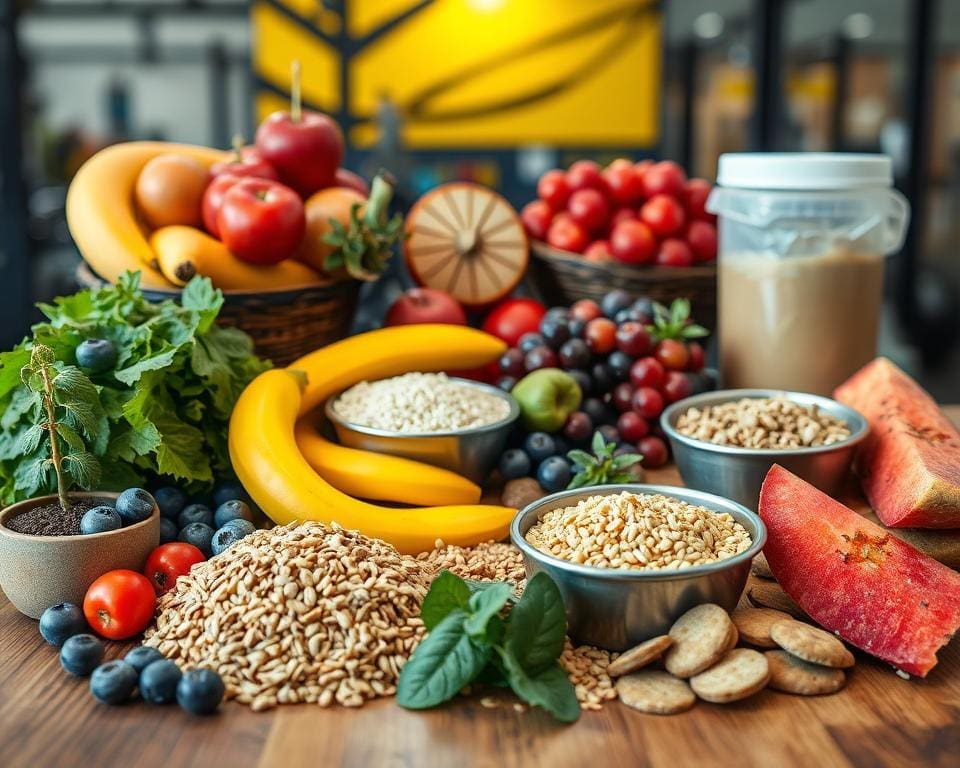In the quest for peak performance, understanding the role of pre-workout nutrition is essential for athletes of all levels. The right pre-exercise fuel is not merely a suggestion; it is a necessity that can dramatically enhance endurance, strength, and overall athletic output. By adopting optimal athletic performance strategies, individuals can ensure their energy levels are maximised, paving the way for more effective workouts.
This insightful section delves into the science behind nutrition, uncovering essential fuelling strategies that lead to improved results. A focus on expert insights into energy utilisation and muscle recovery will empower readers to appreciate the significance of proper food intake before exercising, setting the groundwork for a deeper exploration of specific nutrients and recommendations that follow.
The Importance of Pre-Workout Nutrition
Understanding the critical role of pre-workout nutrition can significantly enhance an athlete’s performance. Tailored nutrition strategies cater to specific energy needs for diverse activities, allowing athletes to maximize their potential. This section explores the importance of pre-exercise fuel in detail.
Understanding Energy Needs for Different Activities
Different types of physical activities demand distinct energy requirements. Endurance activities, such as running or cycling, necessitate a higher carbohydrate intake to sustain prolonged exertion. On the other hand, strength training may benefit from a balanced mix of carbohydrates and proteins for muscle repair and growth. Developing an awareness of these variations is essential for optimising an athlete’s food intake and ensuring proper exercise fueling strategies.
How Pre-Exercise Fuel Impacts Performance
The selection of pre-workout nutrition can directly influence performance during exercise. Scientific studies indicate that specific macronutrients, particularly carbohydrates and proteins, play crucial roles in enhancing stamina and strength. Adequate energy boosting snacks before workouts help maintain blood sugar levels, providing the necessary energy for peak performance. Understanding how these components interact offers athletes a powerful tool to elevate their training sessions.
Timing Your Nutritional Intake for Maximum Benefits
Timing is essential to leverage the advantages of pre-workout nutrition. Consuming meals or snacks approximately 30 to 60 minutes before exercising maximises energy absorption. Proper meal planning ensures that athletes consume the right balance of nutrients at the optimal times. Incorporating effective exercise fueling strategies can lead to improved performance and better recovery post-workout.

Pre-Workout Nutrition for Peak Performance
Nourishing the body prior to exercise is essential for athletes seeking to achieve optimal athletic performance. Various nutrients play a pivotal role in energising the body and enhancing performance during workouts. Exploring the best options for pre-workout nutrition not only boosts energy levels but also improves recovery times. Below are the key elements that contribute to effective pre-workout meals and snacks.
Optimal Athletic Performance: Key Nutrients to Include
The foundation of performance enhancing meals lies in the right balance of macronutrients. Carbohydrates serve as the primary source of energy, providing the fuel needed for intense workouts. Include complex carbohydrates like oats, whole grains, and sweet potatoes to maintain energy levels. Proteins are crucial for muscle repair and growth, with options like lean meats, fish, eggs, and plant-based proteins aiding recovery. Healthy fats, found in avocados, nuts, and seeds, contribute to sustained energy and overall health. Integrating these macronutrients into pre-workout meals can optimise athletic performance.
Energy Boosting Snacks to Power Your Workout
For athletes on the move, quick and effective energy-boosting snacks are essential. Consider the following options:
- Banana with almond butter
- Greek yoghurt with honey and berries
- Cottage cheese with pineapple
- Rice cakes topped with peanut butter and banana slices
These snacks are not only convenient but also packed with nutrients that fuel performance. Aim for consumption about 30 minutes to an hour before your workout for maximum impact.
Performance Enhancing Meals: What to Eat and When
Timing your meals effectively can significantly influence workout outcomes. A balanced meal containing protein, carbohydrates, and fats consumed around three hours prior to exercise maximises stored energy and facilitates optimal athletic performance. Options such as grilled chicken with quinoa and roasted vegetables or a chickpea salad with olive oil and seeds offer the right mix of nutrients. Post-workout, focus on performance enhancing meals that prioritise recovery, such as a protein shake with fruits or a turkey wrap, ensuring your nutritional needs are met.
Sport Nutrition Guidelines for Athletes
For athletes aiming to achieve optimal athletic performance, a well-structured approach to sport nutrition is paramount. These sport nutrition guidelines are tailored to enhance an athlete’s food intake, ensuring that dietary choices align with training demands, personal objectives, and specific sport requirements. Recognising the importance of balanced nutrition, athletes can significantly improve both their performance and recovery.
One essential principle is proper hydration, which is crucial not only for maintaining stamina during workouts but also for recovery afterwards. Additionally, the concept of nutrient timing—consuming the right foods at the correct times—cannot be overstated. This involves strategic meal planning that maximises energy output when it is most needed, thereby supporting overall training intensity.
It is important to dispel common misconceptions that surround pre-workout nutrition. Many athletes may overlook the significance of appropriate dietary choices before exercise, assuming that any fuel will suffice. However, understanding the science behind effective nutrition—such as incorporating complex carbohydrates and lean proteins into their pre-exercise meals—can lead to remarkably enhanced performance. Embracing these sport nutrition guidelines will empower athletes to fine-tune their dietary strategies for consistent results and peak performance.








